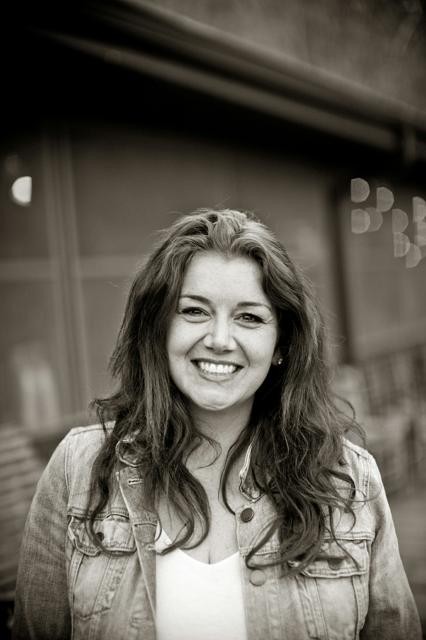Laura Hope-Gill’s fascination with story and healing began when she was diagnosed with late-onset deafness. She felt that the language her doctor used in delivering her diagnosis had nothing to do with her or her story. “The way it was presented to me, my hearing life was over,” she says. “That isn't the case. It was really just beginning, because deafness is an invitation to listen more deeply than I had ever listened before, in new ways far beyond just the ears. When we get our diagnoses — and we all get our diagnoses — we can frame them in this way. Physicians can be the initial authors, the bringers of that new narrative thread into our stories.”
Professor Hope-Gill, director of the graduate writing program at Lenoir-Rhyne University, and Dr. Claire Hicks, HIV specialist at Four Seasons Hospice, are working to develop narrative medicine projects with local physicians in geriatrics and palliative care.
In addition to offering classes on narrative medicine at Lenoir Rhyne, which encourage storytelling as a mode of healing, Hope-Gill is evolving a center for narrative medicine at the University that will include film screenings, workshops, a published journal and conferences.
Hope-Gill’s narrative medicine classes are geared toward physicians, caretakers and writers. The goal is to help students develop empathy and listening skills that they can employ with their patients and peers. In a recent workshop on narrative medicine at Lenoir-Rhyne, attendees — several of whom were caregivers — read a short story with instructions to pay careful attention to feeling, characters, texts, subtexts and metaphor. Afterward, they discussed their observations and insights in groups. In another exercise, attendees listened to another person’s story, wrote down their own interpretation of the narrative and then read the story back. The original storyteller provided feedback on how well the writer had listened in terms of capturing the details and overall theme of their experience. In several cases, the writer not only retold the story accurately but was able to perceive significant underlying themes. According to proponents of narrative medicine, this process helps doctors and caregivers cultivate deeper listening skills, which assist them in diagnosis and care.
The intention is to train physicians and caregivers “not just how to read stories,” says Hope-Gill, “but how to read people, how to tune into the subtleties of what is said and unsaid, to hear what is not spoken.”
Hope-Gill observes that health care professionals are often trained to keep distance between themselves and their patients. “The doctors are not at fault,” says Hope-Gill. “A particular kind of training is.” She believes that narrative medicine can transform health care, encouraging doctor-patient rapport and trust. “We reveal the most when we feel we are being heard,” she says. “We heal best when we feel someone genuinely cares for us.”
And it’s not just the patients who benefit. Hicks says that narrative medicine supports her in “being able to work with difficult, paradoxical emotions that come up during treatment,” adding that the training “helps me be OK with uncertainties, especially in hospice, where we don’t always know what’s going on.”
Both Hicks and Hope-Gill attended training workshops in narrative medicine at Columbia University. The program, founded by Dr. Rita Charon in 2000, was what inspired Hope-Gill to incorporate narrative medicine into the writing program at Lenoir-Rhyne. “I’m just getting started,” she says, “It’s a new field. Narrative medicine is expanding worldwide. It needs a presence here.”
Lenoir-Rhyne University will offer a course in narrative medicine in February. Visit lr.edu for more information on course offerings. To learn more about the field of narrative medicine, visit narrativemedicine.org.
— Ann Marie Molnar is an Asheville writer.



Before you comment
The comments section is here to provide a platform for civil dialogue on the issues we face together as a local community. Xpress is committed to offering this platform for all voices, but when the tone of the discussion gets nasty or strays off topic, we believe many people choose not to participate. Xpress editors are determined to moderate comments to ensure a constructive interchange is maintained. All comments judged not to be in keeping with the spirit of civil discourse will be removed and repeat violators will be banned. See here for our terms of service. Thank you for being part of this effort to promote respectful discussion.